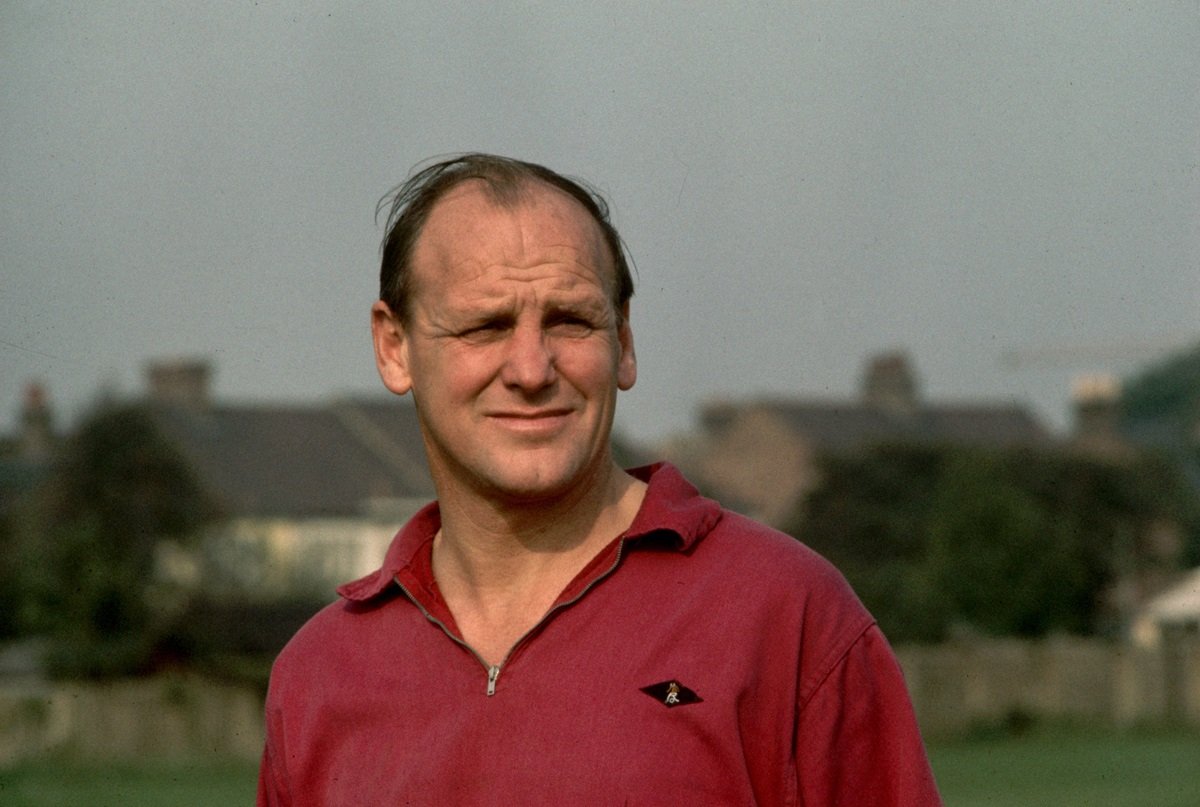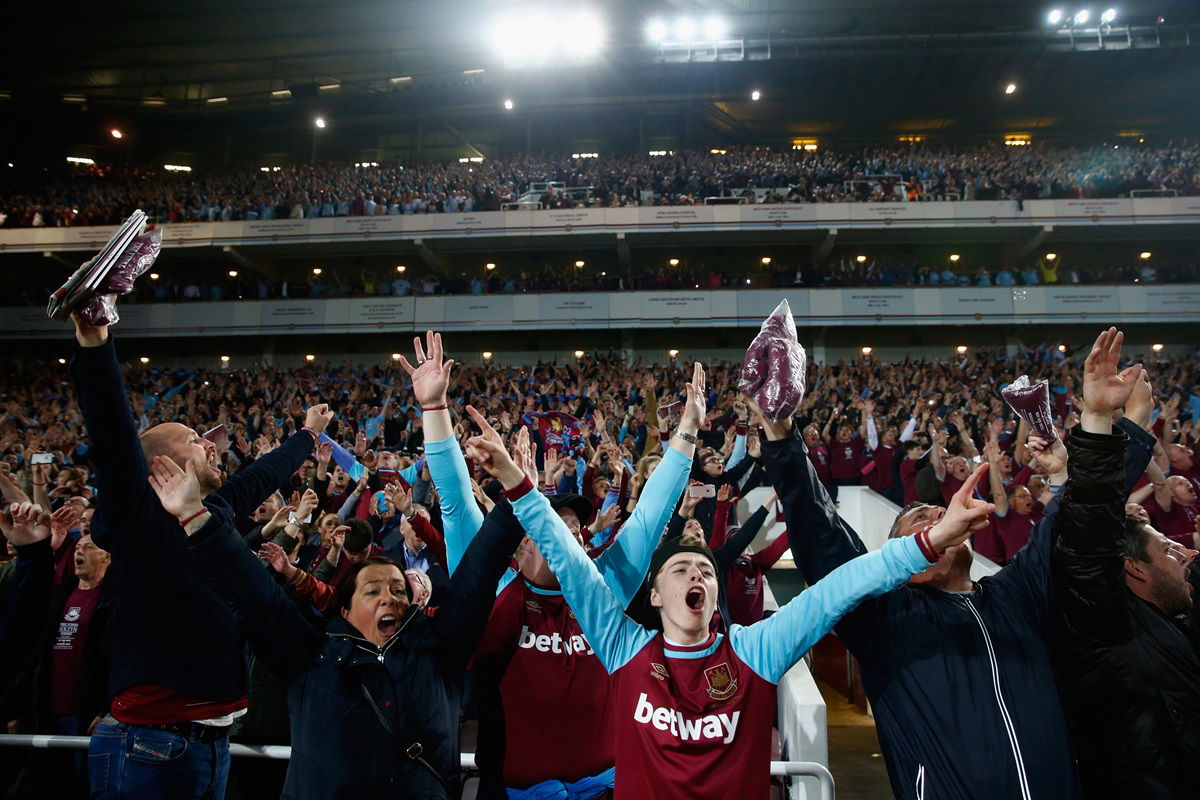West Ham’s history is among the most interesting and eventful of any team in English football.
Since being founded at the beginning of the 20th century, there have been plenty of ups and downs over the decades but they have never fallen below the top two divisions since the 1920s.
In this post, we will go back through West Ham’s past, how the club started, what grounds they have played at and the trophies that they have won.
We will also talk about the club’s most famous managers and players, as well as their fortunes during the Premier League era.
When were West Ham founded?
The Hammers were formed from the ashes of Thames Ironworks FC. The club also had another previous iteration Old Castle Swifts, but the team that we know of today as West Ham United Football Club was established in 1900.
Nickname “the Irons” was retained from their previous moniker as there were still close connections between the club and the ironworks where the team originated.
Their first match as West Ham was played against Gravesend United in a Southern League First Division fixture on Saturday 1 September 1900.
A brief history of West Ham
The London club played in regional leagues before the First World War and it was only in 1919 they were accepted into the Football League’s second division.
Within three years, West Ham were promoted to the top flight, where they remained for the next nine years. Throughout that period, the Hammers remained in the hands of club secretary Syd King, who had stayed in his position since 1902.
However, the club suffered relegation in 1932 shortly after the King left under controversial circumstances. He had a fallout with the board and long-time collaborator Charlie Paynter. West Ham stayed in the second tier until the breakout of World War 2.
A crucial figure in the development of the West Ham we know today was Ted Fenton. The former player was brought in, initially to help Paynter, in 1948. He would take over the reins on his own following the latter’s retirement.
Fenton created the academy, introduced modern training methods as well as encouraged a style of play that was more popular in mainland Europe.
The Golden era

West Ham won their first major trophy in 1964 when the club, under the management of Ron Greenwood, lifted the FA Cup. Just a season later, the Irons also secured their first European title, beating Real Zaragoza in the Cup Winners Cup final in 1965.
The success of the team was due in no small part to the talents of a triumvirate of youth academy products: Bobby Moore, Martin Peters and Geoff Hurst (who had all been guided by Fenton in their formative years).
Those three players would also prove extremely influential when England went on to win their first and only World Cup in 1966.
Greenwood, meanwhile, stayed in charge of West Ham for 13 years, before he was hired to replace Don Revie as England boss in 1974. The Irons had lost a hugely influential character but they managed to fall on their feet with Greenwood’s successor: John Lyall.
Lyall was a former academy player, who retired early due to injury, and he stayed in charge of the Hammers for 15 years, winning two FA Cups, and reaching the 1976 European Cup Winners Cup final.
During his tenure, Lyall’s side were relegated to the second tier in 1978 but they returned to the first division three years later. In 1986, he achieved the club’s highest-ever position of 3rd, but he was sacked in 1989, with the team having lost their top-flight status once again.
The Premier League era
The Hammers became a yo-yo club in the early 1990s which meant that they weren’t part of the original group of teams that split away from the Premier League.
It’s fair to say that West Ham has had to face its fair share of difficulties over the past three decades, with the club’s takeover by an Iceland consortium even endangering its continued existence.
Stability was only fully restored off the pitch following the arrival of David Sullivan and David Gold in January 2010. On the pitch, the club suffered relegation once again in 2011 before returning to the top flight after just one season in the Championship under the guidance of Sam Allardyce.
There have been scrapes with relegation and a number of midtable finishes since then but, following David Moyes’s return in 2019 for his second stint in charge, the club have had one of the most successful periods in their history.
As well as finishing in their second-highest position of the Premier League era in 2021 (6th), West Ham secured the second European trophy in their history by beating Fiorentina in the 2023 Europa Conference League final.
Where have West Ham played?
The Irons’ original home was at the Memorial Grounds but a dispute with the owner Arnold Hills led to the team moving to Boleyn Ground in 1904, the home of Boleyn Castle FC, who were to be amalgamated into West Ham following the change in grounds.
It would remain the club’s home for 112 years before the move to the London Stadium in 2016 (which was originally created for the London 2012 Olympics).
How many trophies have West Ham won?
The London side have won seven major trophies, including three FA Cups, one Charity Shield, one European Cup Winners’ Cup, one Europa Conference League and one UEFA Intertoto Cup.
West Ham have also secured other titles including two Second Division crowns, the Football League War Cup, the International Soccer League and nine London Challenge Cups.
When did West Ham last win the league?
The Hammers have never won a top-flight title, but they last won the Second Division in 1981 under the guidance of John Lyall.
West Ham’s most famous players

We have already mentioned the likes of World Cup winners Bobby Moore, Martin Peters and Geoff Hurst, but the club have also produced other legendary figures such as Trevor Brooking, Billy Bonds and Frank Lampard Snr.
In more recent times, the likes of Paulo Di Canio, Mark Noble and Declan Rice have earned iconic status for their performances.
West Ham’s most famous managers
Syd King, Charlie Paynter and Ted Fenton all had crucial roles in West Ham becoming the club it is today but, in terms of overall success, you can’t look past Ron Greenwood (658) and Jon Lyall (770), who managed a total of 1426 matches between them.
The pair also won a combined six major trophies and reached three other cup finals during their tenures.
